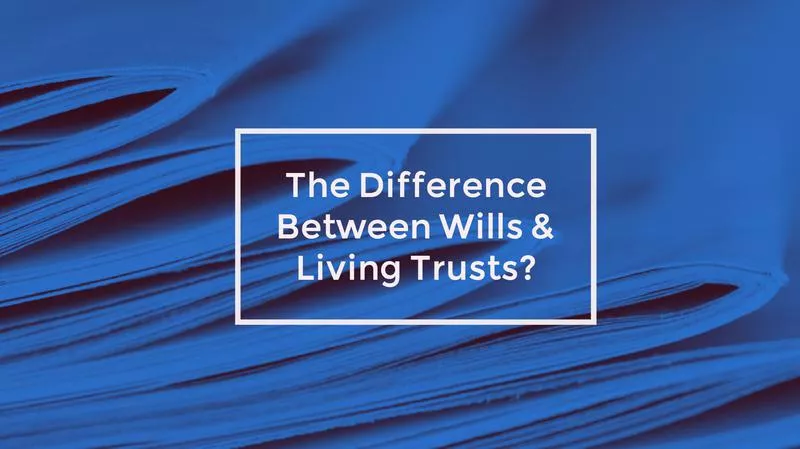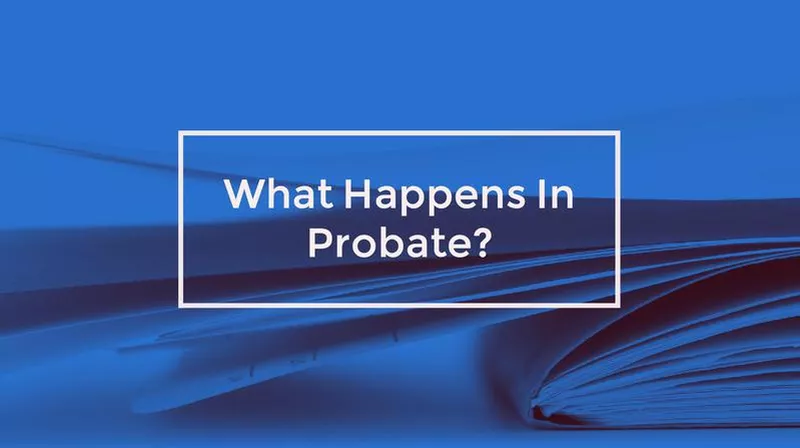Wills vs. Trusts, Explained
There are a lot of similarities between wills and living trusts: Having one is better than having nothing. Both give you control over what happens to your estate after you die. And both involve thinking about your own mortality, which means neither tops anyone’s list of fun weekend activities.
Most people assume they are covered with a simple will, and in many cases, they are correct. A trust, however, offers added benefits and helps you control your assets while you’re still alive if you should become incapacitated. The tradeoff is that living trusts are more complex than wills and, as a result, more costly to set up and maintain over the course of your life.
Laws vary by state so you should work with a financial adviser and an attorney that specializes in estate law. This guide will help you understand the difference between wills and living trusts and the considerations you need to weigh when you consider which option is best for your personal estate planning.
What’s The Difference Between Wills and Living Trusts?

Most people have a basic familiarity with wills: it’s a written document that is signed and witnessed and directs how your property should be divvied up when you die. You can revoke and amend a will throughout your lifetime, and it also allows you to appoint a guardian for your minor children.
A trust manages your property while you are still alive and after you die. You can appoint yourself trustee and name a successor in case you become incapacitated. Trusts are not only an effective way to help plan for a situation where you become disabled, but they avoid probate, meaning your financial affairs won’t become part of a public record.
Trusts need to be actively managed, and they can only control the assets that have been placed into it. If you die before funding your trust, the trust become useless and your heirs are likely to lose out on one of a trust’s biggest benefits: shelter from certain estate tax issues.
Plan Before Making A Decision

Before you even decide whether you need a will or a living trust, you need to assess where your finances are now and what you want to happen in the future. The American Endowment Foundation recommends a six-step process, including:
Define Your Estate Planning Goals: How do you want your assets distributed? Who do you want to handle the distribution? What are your concerns about privacy and family harmony? What estate tax implications will your heirs face?
Gather And Organize Your Financial Data: Collect all pertinent documents and statements and calculate your current net worth. Figure out how you hold title to any property you own, and review your beneficiary selections on all bank, brokerage, and insurance accounts.
Analyze & Discuss: At this point in the process, you want to bring in your financial adviser or probate lawyer and develop a flow chart showing the parameters of your existing estate plan.
Develop Strategies: Now you are nearing the point where you will be able to determine whether a will or living trust works better for your given circumstances and wishes.
Implement Your Estate Plan: This includes figuring out where your documents will be located and making sure the person charged with handling your estate not only knows where they are located, but understands your wishes and motives behind the decisions you have made.
Monitor Progress: Once you have an estate plan in place, you should review it annually to make sure it still reflects your goals. Additional reviews should be conducted when your family situation changes.
Situations That Favor A Will

Everyone’s estate planning needs are different. But there are certain situations where as a will is often (but not always) the option that works best.
For example, many jurisdictions have simplified probate procedures for estates that fall under a certain value. In those cases, or in states where probate is a relatively simple process, you may be best served by a straightforward will. LegalZoom maintains an updated, state-by-state list of will and last testament requirements.
You may also opt for a will if you expect your family situation to remain somewhat stable and want to be done with estate planning. While you should still review wills annually, they do not need to be actively managed the way a living trust does.
Can’t Find A Trustworthy Trustee? Go With A Will

Trusts are designed, in part, to keep estates out of probate court. You need to trust the trustee fully, as there will be limited legal recourse for your heirs if your estate is mishandled. You will still need to name an executor in your will, but there is more protection for heirs through the probate process.
Many people choose a spouse or adult child as their trustee in a living trust, and for simple trusts, this is often the best option. Who you choose does not necessarily need to be a financial expert, but they should be organized, responsible, and honest, and they should understand the importance of choosing capable advisers to help them with the financial and legal decisions that need to be made.
Keep in mind that while a spouse is often a good choice for trustee, this person may be burdened with caring for you if you have become incapacitated or grieving if you have died. It’s often easier to choose a person who lives nearby, but your trustee does not need to live in the same state as you.
Where You Store A Will Is An Important Decision

In most states, the executor of your will needs the original copy of the will to start the probate process. That means if you do not choose a place to store the original copy carefully, all the work you put into writing your will may go for naught. At the very least, it will add stress and expenses to the already difficult process for your heirs.
LegalZoom recommends you choose a place to store your will with care. Among their suggestions are a safe deposit box, with your attorney, in a waterproof and fireproof box in your home or, if allowed, filing the original copy with your county clerk. There are pros and cons to each suggestion, but the most important thing is to make sure your executor knows where you decide to store the original copy of your will.
What Happens In Probate?

Unlike living trusts, wills go through the probate process. This process is designed to settle your debts and transfer your remaining assets to your heirs. While it can be intimidating, the process is easier when you have a well-written will and have discussed your wishes with your executor.
Upon your death, the executor will file your will with the court to begin the probate process. This opens the process of petition to all heirs and beneficiaries. The executor also needs to give notice to all known creditors and inventory all estate property. This may involve an independent or court-appointed appraiser to establish a value for non-cash assets.
Estate expenses, funeral expenses, known debts and taxes are paid first from the estate. After that, probate laws are in place to make sure the remaining assets are transferred to heirs in an orderly and timely manner.
Parents With Minor Children Should Explore Living Trusts

While a will allows you to designate a legal guardian to take custody of your children, a living trust may offer more control. Specifically, a trust will let you establish provisions of when a child will be entitled to assets held in the trust. In most cases, a will immediately transfers property to heirs, meaning you will have limited control over those finances.
In many cases, parents opt for a revocable living trust. This allows the trustee to manage and distribute the assets in the trust for your children until they reach a certain age. You can set conditions on when the assets can be transferred and what they can be used for until children reach the age where you want them to inherit the money. You should also consider provisions for children with special needs that will require care into adulthood.
Are You Subject To The Estate Tax? Consider A Trust

The estate tax changes frequently: the IRS has set it at $5.49 million for 2017. Currently, 99.8% of all estates owe no estate taxes when they’re transferred, but if you are in the other 0.2%, this can be a big burden for your heirs.
If your estate is likely to be above the estate tax threshold at the time of your death, you may want to consider a living trust with tax planning provisions. Moving assets to a living trust essentially removes them from your estate and circumvents the estate tax.
Living Trusts Can Quiet Quibbling Heirs

Do you expect your heirs to honor your wishes as written? Then a will works for your estate. But the complexity of living trusts also offers specificity. Additionally, because one aim of a living trust is to keep an estate out of probate, they are harder to contest.
EverPlans offers eight signs that signal your family may fight over your estate. They also recommend naming a single trustee; some families will name more than one child trustee “co-trustees” in the spirit of fairness, but this usually slows down a process where efficiency and decisiveness is needed.
Other signs that often get overlooked when trying to predict future estate strife are big income disparities between siblings, gifts like a house down payment given to one heir but not others before death and a late-in-life marriage to a younger spouse. If you have not included a child in your will, keep in mind they have nothing to lose by challenging your will in probate court.
Added Protection: The Pour-Over Will

Remember, trusts only cover assets that have been transferred into them. There are situations where assets may not be transferred to the trust, including assets acquired after the trust was created or assets that were overlooked when you set up the trust. In this case, those assets will essentially be treated the way estates without a will are treated. Laws are different in each state, but there is generally a prescribed way unwilled assets flow, which may not be the same as your personal wishes.
A pour-over will helps you avoid that confusion. While pour-over wills are likely still subject to probate, they can simplify the process. In many cases, a pour-over will names the trust the beneficiary for all of the estate’s assets. You should, however, check with an attorney to make sure naming the trust doesn’t have any added taxes in your state.